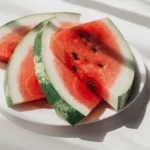One of the best things you can do for your health is to eat a healthy, well-balanced meal. In fact, you can stop up to 80% of heart disease and stroke before they happen by making healthy choices and following healthy habits, like eating well and being active.
One of the most important weight loss habits is to do this. Fruits and vegetables are full of good things for you, like fiber, antioxidants, vitamins, and minerals. They also help you keep a healthy weight by making you feel full longer. At every meal and snack, put half of your plate full of fruit and veggies.
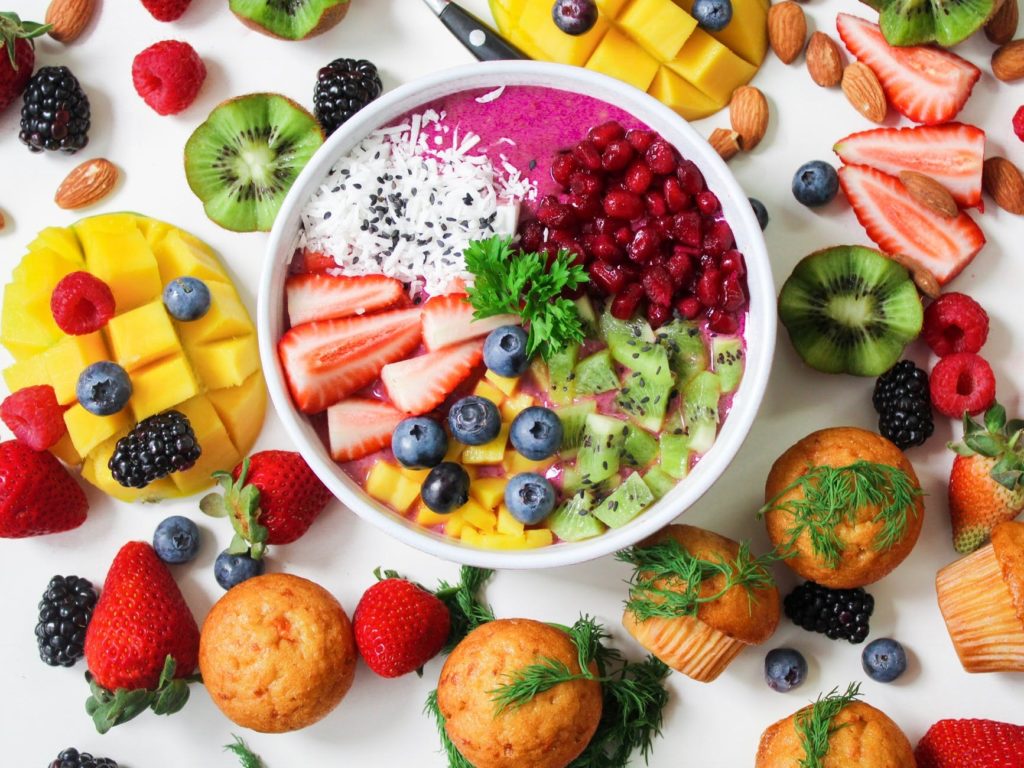
Do something exercise for 30 minutes most days of the week. Take this in three 10-minute chunks if you’re short on time. Some healthy ways to move are to walk, play sports, dance, do yoga, or run. A low-fat diet with lots of fruits, veggies, and whole grains is good for you.
You should always choose healthy foods, no matter what age you are. But it can be hard to eat healthy even if you know what to buy and how to cook it. You might not be able to eat the best food for you because of your income, health problems, mood swings, or dietary restrictions.
Mindful eating basically means eating slowly and without any other things going on. Taking your body’s hunger cues into account and only eating until you’re full. figuring out the difference between real hunger and other reasons to eat
Heart disease and stroke are less likely to happen if you eat well because
- Getting your cholesterol down
- Getting your blood pressure down
- helping you keep your weight in check
- Keeping your blood sugar in check.
What does a fair and healthy meal look like?
The Canada Food Guide says that every day you should eat a variety of healthy foods. In order to do this, you should eat more plant-based foods and less highly or ultra-processed foods.
What does it mean to eat well?
Eating healthy doesn’t mean following tight rules, staying too thin, or not eating the foods you enjoy. Instead, it’s about eating meals that are well-balanced and make you feel great, give you more energy, improve your health, and make you happier.
There’s no need for healthy eating to be too hard. You’re not the only one who feels confused by all the different nutrition and diet tips out there. It looks like for every expert who says a certain food is good for you, there are two who say the exact opposite. The truth is that your general eating habits are more important than the foods or nutrients that have been shown to directly improve your mood. To eat well, you should eat more things that are more like how nature made them. This could change the way you think, look, and feel a lot.
By following these easy tips, you can clear up any confusion and learn how to make and stick to a tasty, varied, and healthy diet that is good for your body and mind.
What you need to know about eating healthy
Some extreme diets may say otherwise, but to keep our bodies and minds healthy, we all need a mix of protein, fat, carbs, fiber, vitamins, and minerals. You don’t have to cut out whole groups of foods from your diet. Instead, choose a variety of foods from each group.
Protein is good for your brain and helps you feel good. People with kidney disease should not eat too much protein, and eating too much protein can make you miss out on other things that are good for you. As we age, though, study shows that many of us need more high-quality protein in our diets. That doesn’t mean you have to eat more animal goods, though. You can make sure your body gets all the protein it needs every day by eating a range of plant-based sources of protein. Read: How to Choose Healthy Protein
Fat. Fats are good for your body in many ways, they can make food taste good, and they can help you feel full after a meal. But not all fat is the same. It has been found that some fats, like saturated fats, make you more likely to get some diseases. On the other hand, unsaturated fats are good for your brain and heart. Omega-3 fats are very important for your mental and physical health. If you eat more unsaturated fat, it can help your health and make you feel better. Read: How to Pick Healthy Fats
Your brain and body get most of their energy from carbs. Fruit, veggies, whole grains, and nuts are all good examples of complex, unrefined carbs that should make up most of your carbs. Avoid sugars and refined carbs like the plague, white bread, and sugary drinks. Changing your meals from simple, refined carbs to complex, unprocessed carbs and making sure you get enough protein and unsaturated fat can help keep your blood sugar from rising too quickly and your mood and energy from changing. Read: Sugar and White Carbs
Fiber. Grains, fruit, veggies, nuts, and beans are all high in dietary fiber. Eating these foods can help you stay regular and lower your risk of heart disease, stroke, and diabetes. Even better, it can help you lose weight by making you feel fuller for longer. Read: Foods High in Fiber
Calcium. Not getting enough calcium in your food can cause osteoporosis and make it harder to sleep, deal with stress, and feel good overall. No matter what age or gender you are, it’s important to eat things that are high in calcium and low in calcium. You should also make sure you get enough magnesium, vitamins D and K, and calcium. Read: Calcium and Healthy Bones
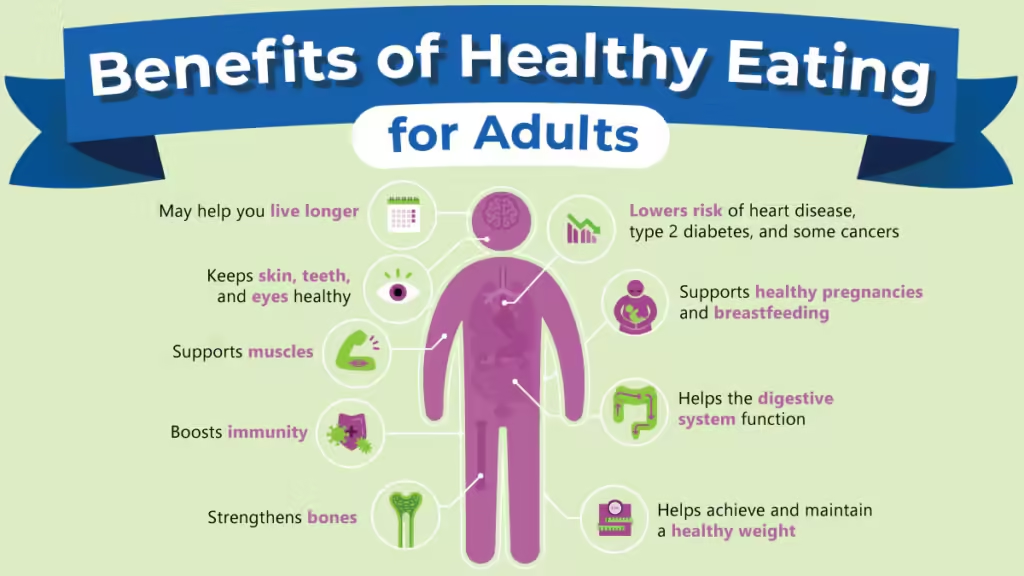
Changing your food to be healthier
It’s not necessary to choose between an all-or-nothing diet and a balanced, healthy one. Don’t try to be perfect or give up all the foods you like. Also, don’t try to change everything at once. Doing that will probably only make you cheat or give up on your new eating plan.
Adding a few little changes at a time is a better plan. Setting small goals can help you reach bigger ones over time, without making you feel deprived or stressed out by a big change in your diet. There are a lot of small steps you can take to improve your diet. For example, you could add a salad to one of your meals every day. As you get used to making small changes, you can add more healthy options.
Talk to a trained therapist.
Better Help is a website that connects you with licensed therapists who can help you with a wide range of issues, such as anxiety, sadness, relationships, and more. In as little as 48 hours after taking the test, you’ll be matched with a therapist
Take the Test
If you want to do well, try to keep things easy. It doesn’t have to be hard to eat a more balanced meal. For example, don’t worry too much about counting calories. Instead, think about your food in terms of color, variety, and freshness. Try to eat less packaged and highly processed foods and more fresh vegetables as often as you can.
Make your own meals more often. You can be more in control of what you eat and see more of what goes into your food if you cook more meals at home. It might make you feel less tired, bloated, and irritable, and it won’t make your depression, stress, or worry worse.
Make sure your food is balanced. If you want to change your eating habits, you should try to make changes that will make your food better overall. It can be good for your health to switch from heavy fats to healthy fats, like grilling salmon instead of frying chicken. But replacing animal fats with refined starches, like donuts for bacon for breakfast, won’t make you feel better or lower your risk of heart disease.
Check out the labels. Being aware of what’s in your food is important because packaged foods often have things in them that your body doesn’t need.
Pay attention to how you feel after eating. This will help you pick up good new tastes and habits. The more balanced and healthy your food is, the more likely it is that you’ll feel better after a meal.
Take in a lot of water. Even though water helps our bodies get rid of waste and toxins, a lot of us are dehydrated all the time, which makes us tired, gives us headaches, and makes us feel weak. People often think they are hungry when they are actually just thirsty, so drinking plenty of water may also help you eat less.
An important part of living well
Just what is moderation? In simple terms, it means that you should only eat what your body needs. At the end of a meal, you should be full, but not stuffed. It means less food for many of us when we talk about balance. But that doesn’t mean giving up the things you love. One example of balance would be having bacon for breakfast once a week instead of every day.
Do not think of certain foods as “off-limits.” If you say you can’t have certain foods, you will want them more and will feel bad if you give in to desire. Make yourself more aware of those things to begin. Does your body need certain foods, or do you eat because you always do? What kinds of things make you feel different?
Think about eating less. Recently, serving amounts have grown very big. When you go out to eat, pick a starter instead of a main, share a dish with a friend, and don’t ask for anything extra large. Visual cues can help you figure out how much food to eat at home. The right amount of meat, fish, or chicken for you is about the size of a deck of cards, and the right amount of rice, pasta, or mashed potatoes is about the size of a light bulb. If you’re still hungry after a meal, think about what you need to feel full. Plus, try to fill up on healthy foods like fruit or vegetables instead of highly processed foods.
Do not rush. Food shouldn’t just be something you gulp down between meetings or on the way to pick up the kids. You should take the time to think about it as fuel. Remember that it takes your brain a few minutes to tell your body it’s full, so eat slowly and stop eating before you feel full.
When you can, eat with other people. People who eat alone, especially in front of the TV or computer, tend to eat too much without thinking.
Watch what you eat as a snack. Snacks can keep you going between meals during the day, but they can also become a crutch when you’re stressed or tired. Try to pick snacks that are well-balanced by including carbs, proteins, and fats, like an apple or bread with cheese, or yogurt and granola.
Be aware of eating when you’re upset. We don’t always eat because we’re hungry. Food is also something that many of us do to deal with stress or bad feelings like sadness, loneliness, or boredom. But you can better stick to a healthy diet if you learn better ways to deal with worry and your feelings.
When you eat is just as important as what you eat
Every day, eat breakfast and a few smaller meals. A healthy breakfast can get your body going, and small healthy meals throughout the day will keep you going.
Do your best not to eat late at night. However, there is some proof that eating late at night can make you gain weight. This could be linked to eating when you’re not hungry. Many of us see the evening as a time to rest and relax, so it’s easy to eat without thinking.
Eat a lot more veggies and fruits
When you eat a lot of fruits and veggies, you get a lot of vitamins, minerals, antioxidants, and fiber. Focus on getting at least five servings of fruits and veggies every day, and they will fill you up on their own. Half a cup of raw fruit or vegetable, like an apple or banana, is a serve. Most of us need to eat twice as much as we do now.
To get more of what you need
- Berry-rich berries can be added to your favorite breakfast cereal.
- For dessert, eat a mix of sweet fruits, like oranges, mangos, strawberries, and grapes.
- Instead of rice or pasta as a side dish, try a bright salad.
- Pick up some carrots, snow peas, or cherry tomatoes as a snack, and pair them with peanut butter or spicy hummus dip.
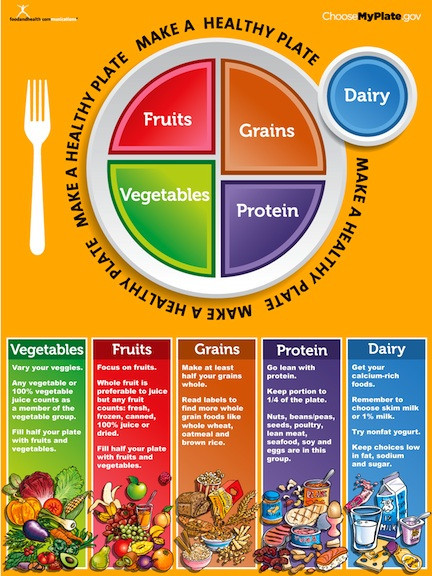
How to get veggies to taste good
It doesn’t take long for plain salads and steamed vegetables to taste boring, but there are many ways to spice them up.
Color it up. Brighter and deeper-colored veggies not only have more vitamins, minerals, and antioxidants, but they can also change the taste of food and make it look better. You can add color with glazed carrots or beets, roasted red cabbage pieces, yellow squash, sweet, colorful peppers, or fresh or dried tomatoes.
Bring salad veggies to life. Don’t just eat lettuce. Lots of good things for you are in kale, arugula, spinach, mustard greens, broccoli, and Chinese cabbage. To make your salad greens taste better, drizzle them with olive oil, add a spicy sauce, or sprinkle them with chopped almonds, chickpeas, bacon, Parmesan cheese, or goat cheese.
Here are some new ways to cook broccoli, green beans, Brussels sprouts, and asparagus. You can grill, roast, or pan fry these healthy sides with chili flakes, garlic, shallots, mushrooms, or onion instead of boiling or steaming them. Or let it sit in sour lemon or lime juice before cooking.
What makes up a healthy diet?
Getting a lot of fruit and veggies
One of the most important weight loss habits is to do this. Fruits and vegetables are full of good things for you, like fiber, antioxidants, vitamins, and minerals. They also help you keep a healthy weight by making you feel full longer.
At every meal and snack, put half of your plate full of fruit and veggies.
Picking foods with whole grains
Foods that are high in whole grains are brown or wild rice, quinoa, oats, hulled barley, and whole grain bread and crackers. The whole grain is used to make them. Being healthy and full for longer is good for you because whole grain foods have fiber, protein, and B vitamins.
Instead of white bread and pasta, choose whole foods like quinoa and brown rice.
Whole grain foods should take up a quarter of your plate.
Having protein-rich foods
Foods that are high in protein include nuts, seeds, tofu, fish, shellfish, eggs, chicken, lean red meats like wild game, lower-fat milk, yogurts, kefir, and cheeses that are low in fat and sodium.
Protein keeps bones, muscles, and skin in good shape.
Every day, eat some protein.
As much as possible, try to eat fish at least twice a week and more plant-based foods.
Protein can be found in a lot of foods, like dairy. Pick choices with less fat and no flavor.
Protein-rich foods should take up a quarter of your plate.
Putting limits on highly and ultra-processed foods
Ultra-processed foods are foods that have been changed a lot from their original source of food and have a lot of extra ingredients added to them. Vitamins, minerals, and fiber are often taken away during processing, and salt and sugar are added instead. Foods like hot dogs, chips, cookies, frozen pies, deli meats, white rice, and white bread are all processed.
Some things that haven’t been changed much are fine. There are a few industrially made additions to these foods, but they are mostly the same. Minimally prepared foods still have a lot of the nutrients they need. Among these are eggs, milk, cheese, flour, brown rice, oil, frozen fruit and veggies, and salad in a bag. These slightly processed foods are not what we mean when we say you shouldn’t eat processed foods.
A study funded by Heart & Stroke found that almost half of Canadians’ meals are made up of ultra-processed foods. Find out more about it here.
Choosing water as your drink
Water is good for you and keeps you hydrated without adding calories to your diet.
Many drinks, like energy drinks, fruit drinks, 100% fruit juice, soft drinks, and sweetened coffees, are high in sugar and not very healthy. It is easy to drink too many empty calories, which makes you gain weight.
Even if it says it’s 100% fruit juice, stay away from it. Some of the good things about fruit are in fruit juice, like vitamins and minerals. But fruit juice has more sugar and less fiber than fruit. People shouldn’t eat fruit juice instead of veggies. People in Canada should eat their fruits instead of drinking them.
If you can’t get clean water, you can quench your thirst with coffee, tea, unsweetened low-fat milk, or water that has already been warmed.
Five tips from the pros
Make most of your meals at home with whole foods or foods that have been cooked very little. To keep things exciting, pick from a number of different proteins. Giving each day a catchy name can help you make plans. Don’t eat meat on Mondays? Try this meal instead.
Plan your meals for the week ahead of time. This is the key to making quick and easy meals. Read our buying advice here.
Pick recipes that have a lot of fruit and veggies. At every meal, you should try to get half of your plate full of fruits and veggies. For more information, click here. Every day, eat fruits and veggies that are brightly colored, like orange and dark green ones.
Instead of fresh fruits and veggies, you can use frozen or canned ones that aren’t sweetened. Try this dish.
Drink water instead of drinks with a lot of sugar. A good way to stay refreshed is to drink milk that is low in fat and sugar. Keep a water bottle that you can use again and again in your car or bag so that you can fill it up anywhere.
You should eat more small meals. Every day, you should eat three meals and two snacks. If you wait too long to eat, you might choose foods that are bad for you. Just in case, keep snacks like this that are easy to eat in your purse or bag.
How to Quickly and Easily Eat Well
Men’s Health: Food and Nutrition for Heart Health Food and Nutrition for Fitness
When you first start, you have good plans. You save healthy recipes, buy quinoa and kale, and get a pressure cooker. Then something takes place. You are given a big job at work, have to take care of sick children (or parents), or have to run errands all day. We don’t always have the time or energy to make meals because of other things going on in our lives. You feel heavy and give up on ever eating healthy again after calling or going through the drive-thru to get a pizza.
A female fast food worker gives a female driver food at the drive-thru
You have good reason to worry. A diet full of sugar, salt, and saturated fat can make you fat, raise your blood cholesterol, and make your blood pressure go up. All of these are things that can put you at risk for heart disease. You can make healthy meals at home, though, without having to spend a lot of time making meals or shopping for food. You can eat better while you’re out and about too. Here are some tips that will help you stay on track even when things are getting crazy.
Restaurants with Healthy Food
A lot of places now have lighter options on their menus, and the calories are often listed. Browse through online restaurant lists quickly to find the best places to eat before you go. Then read these tips before you place your order:
- Start with a small salad or soup with broth. You’ll eat fewer calories altogether because it’s a healthy and filling way to start your meal.
- Pick dishes that are made with vegetables or fish or chicken without the skin that has been baked, broiled, or grilled.
- Try to eat foods that aren’t too oily or greasy. For instance, get the grilled chicken or fish tacos instead of the chicken enchiladas covered in cheese. Pick foods that don’t have thick soups or gravies.
- Ask for vegetables or salad instead of sides like fries, coleslaw, or mashed potatoes with lots of butter.
- Sometimes the portions that places serve are way too big. Check to see if there are smaller amounts. If you ask, restaurants often serve “half” soups or sandwiches. If not, ask for a doggie bag and be ready to take about a third to a half of the food home with you.
- Pick fresh fruit or sorbet for dessert if you’re hungry.
Better Picks for Fast Food
You don’t have to eat a greasy hamburger and salty fries every time you go to fast food. Today, there are many food choices where you can find healthier treats. A lot of fast food places also have online menus that show how many calories are in each item.
If you want something quick and easy to eat, choose a place where you can make more of what you buy. Being healthy at a sandwich shop is easy. Just ask for less mayo, more vegetables, and whole wheat bread. A lot of the time, they also serve salads and soups. You can also trust ethnic restaurants that let you make your own bowls or serve grilled meat and vegetables.
But if you’re going through a regular drive-thru, remember these things:
- Stay away from fried foods like onion rings, French fries, chicken strips, and bites.
- A burger has more saturated fat than a grilled chicken breast sandwich without the skin.
- Order the smallest sizes—don’t make anything bigger than it needs to be. You can get the taste you want with a lot fewer calories if you order your favorite fast food from the kids’ menu.
- Leave off the high-calorie sides and toppings.
- Instead of sugary drinks, choose water, tea that isn’t sweetened, or fat-free or low-fat milk.
- Easy-to-use meal kits for cooking at home
- If you want to eat healthy meals at home but don’t have time to find recipes, plan your meals for the week, and go food shopping, there’s an easy way to do it: meal subscription boxes.
More than 100 different companies will bring to your house every week boxes of food that are enough for several meals. Some people think the extra ease of not having to plan and shop for their meals is worth the extra cost. When your meal box arrives, all you have to do is mix the pre-measured items together and follow the cooking directions. In minutes, you’ll have a tasty dinner that fits your budget. You can pick from a list of recipes that changes all the time. A lot of businesses also have choices that are low in carbs, calories, gluten, or meat. You also don’t buy items that you don’t use and end up in the fridge.
It’s important to think about a healthy diet whether you eat out or at home. That means eating a variety of healthy foods, such as low-fat dairy, veggies, fruits, whole grains, and lean protein.
You can still feel good about what you eat even when your life gets busy because there are so many easy-to-make meals available and you know how to make smart, heart-healthy choices.
How to Live a Healthy Life: What Else Do We Need to Know?
Food is what keeps us alive, so it’s very important to know how it works in your body and how it can better or worsen our health. In this talk, Chairman of the Nutritionists in Bulgaria and Ph.D. student in Human Physiology Yana Danailova talked about the most important things we need to know about making healthy eating a way of life.
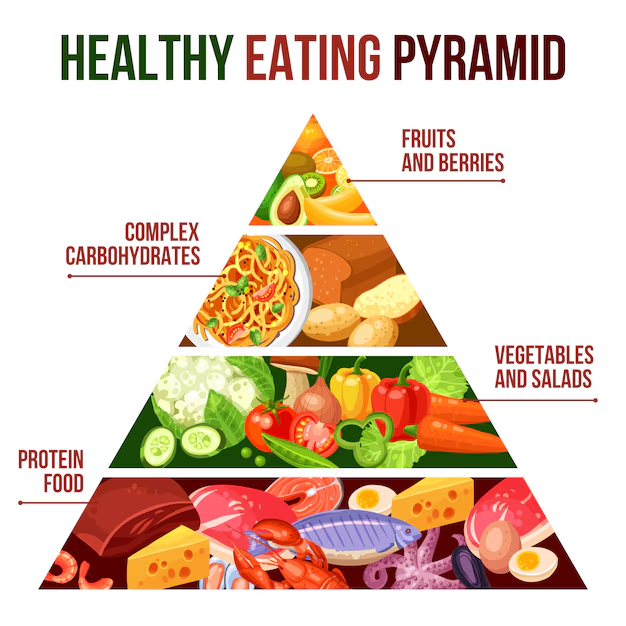
All the bad things about the way people eat these days
Today, overeating is one of the most common health issues people have. The problem starts with eating packaged foods, which have a lot of extra sugar, preservatives, trans fats, and flavorings. People love these kinds of foods because they taste great, but most of the time they don’t have much nutritional value. This means that a person has eaten enough calories for the day, but they are what are called “empty calories.” This means that he is not getting enough fiber, vitamins, minerals, and other things he needs.
Jana says that eating foods that come from nature is the most important thing to remember. Foods that aren’t changed in any way are better. If you don’t, eating too many empty calories will lead to a number of deficiencies whose effects will make your quality of life worse. On top of that, illnesses and health issues start to show up and often last for a long time. That’s why keeping track of your symptoms is important.
Daily habits that will help you stay healthy
Without a doubt, everyone’s diet is different, and there is no one “diet” that everyone should follow. There are, however, some general rules and guides that can help people find a balanced answer to the question of what they should eat. Jana tells you:
- Stay away from highly processed foods, especially fried ones, because the fat that gets hot can cause cancer. Once the food has been heated through, add fats to make it taste better.
- Every day, you should eat at least half of your food raw. Fruit (in bits or as a smoothie), for instance, can be eaten for breakfast. For lunch and dinner, just eat your main dish with a salad.
- Do what you can to take care of your gut germs. It should have 80% plant-based alkaline foods and 20% animal-based acidic foods. Other fermented foods that are good for the gut bacteria are pickles, sauerkraut, kombucha, and so on.
- Cut down on how much white flour, salt, white sugar, soda, and fried food you eat. Instead, you should eat more fresh veggies, fruits, and water.
- Listen to your body. If food makes you feel bad, don’t eat it, even if it tastes good.
- Of course, making big changes to habits that you’ve had for a long time isn’t easy and doesn’t happen quickly. At some point, everyone eats things that aren’t great for them. Always keep in mind that you shouldn’t feel bad about yourself or blame yourself. Food should be your friend, and remember that balance is important for your mental and physical health.
There are myths and facts. What is the truth?
There are a lot of myths on the Internet about different meals during the summer, but they are based on extreme moves. The truth is that you need to change the way you eat if you want to lose weight. This is not a short-term fix; think of it as a way of life. Jana said that she often sees people whose metabolisms have been messed up by extreme diets that cut out one or two macronutrients.
These food groups—carbs, proteins, and fats—are very important for the body’s functions and must be eaten in big amounts (hence the name “macro”). The daily ratio for a healthy person should be 50–60% carbs, 10–15% proteins, and 20–30% fats. If any of these large groups are taken away, there are big health risks. Nutritionists are the best people to talk to about making a plan because they can give you the right advice. This way, you won’t hurt your digestion and get the yo-yo effect.
Can digital tools be useful?
There’s no question that most people’s daily lives are chaotic these days. This is also the reason why a lot of us don’t make time to see an expert and forget to take our vitamins and supplements. You no longer have to worry about these issues with the Medrec:M digital health mobile app. This app lets you store medical records, keep track of your medication or supplement intake, and even check in with healthcare pros from afar.
These eight useful tips will help you eat better by going over the basics you need to know.
Eating the right number of calories for your level of activity is important for a good diet. This way, the energy you take in and use are equal.
You will gain weight if you eat or drink more than your body needs. This is because the extra energy is stored as fat. You’ll lose weight if you don’t eat or drink enough.
You should also eat a lot of different foods to make sure your body gets all the nutrients it needs and your diet is healthy.
A man should eat about 2,500 calories (10,500 kilojoules) every day. A day for women should have about 2,000 calories (8,400 kñ).
A lot of adults in the UK eat more calories than they need. They should eat less.
Base your meals on simple carbs that are high in fiber
Starchy carbs should make up a little more than a third of what you eat. Some of these are bread, rice, pasta, potatoes, and grains.
Pick wholegrain or high-fiber foods, like brown rice, potatoes with the skins still on, wholewheat pasta, and so on.
They can help you feel full longer because they have more fiber than white or refined starchy starches.
With each big meal, try to eat at least one starchy food. Some people think that starchy foods make you fat, but the carbs they contain have less than half the calories of fat per gram.
When you cook or serve these kinds of foods, watch out for the fats you add. For example, oil on chips, butter on bread, and rich sauces on pasta all add calories.
Eat a lot of vegetables and fruit
There are at least 5 servings of different fruits and vegetables that you should eat every day. They can be fresh, frozen, canned, dried, or made into juice.
It’s not as hard as it sounds to get your 5 a day. Why not cut up a banana and put it on top of your cereal for breakfast? Or instead of your mid-morning snack, have a piece of fresh fruit.
You can eat 80g of fresh, canned, or frozen fruits and veggies at a time. 30g is the right amount of dried fruit to eat at mealtimes.
One serving is also a 150ml glass of fruit juice, veggie juice, or smoothie. But don’t drink more than one glass of these drinks a day because they are high in sugar and can hurt your teeth.
Eat more fish, and make sure you get some fat fish
Fish has a lot of vitamins and minerals and is a good source of energy.
You should try to eat at least two servings of fish a week, with at least one serving being oily fish.
There are a lot of omega-3 fats in oily fish, which may help keep you from getting heart disease.
These fish are oily:
- salmon
- Trout
- a herring
- sardines
- fish called pilchards
- catfish
Fish that aren’t oily are:
- haddock
- plaice
- Coles
- cod
- tuna
- Skate
- hake
Fish can be fresh, frozen, or canned. Keep in mind that canned and smoked fish can be high in salt.
While most people should eat more fish, there are limits on how much of some types of fish you should eat.
Learn more about fish and crabs.
Sugar and heavy fat should be cut back
Full-fat foods
You should eat some fat, but you should be careful about how much and what kind of fat you have.
Saturated fat and unsaturated fat are the two main types of fat. If you eat too much saturated fat, your blood cholesterol level may rise, which makes you more likely to get heart disease.
Men shouldn’t eat more than 30 grams of saturated fat every day. Women shouldn’t eat more than 20 grams of saturated fat every day.
Low-fat diets are not good for kids younger than 5 years old. Kids younger than 11 years old should have less saturated fat than adults. Also, until the age of 2, full-fat dairy items like cheese, fromage frais, and yogurt are good for you.
Sat fat can be found in many foods, like
- meat with a lot of fat
- Sausage
- butter
- tough cheese
- cream
- cakes
- Cookies
- lard
- pies
Don’t eat as much saturated fat. Instead, eat more unsaturated fats, like avocados, veggie oils and spreads, and oily fish.
It is better for you to use a little olive oil, veggie oil, or low-fat spread instead of butter, lard, or ghee.
When you eat meat, pick lean cuts and cut off any fat that you can see.
No matter what kind of fat you eat, you should only eat small amounts of it.
Sugar
If you regularly eat and drink things that are high in sugar, you are more likely to gain weight and get cavities.
Sugary drinks and foods often have a lot of energy, which is measured in kilojoules or calories. Eating these foods and drinks too often can make you gain weight. They can also make your teeth rot if you eat them between meals.
When sugar is added to foods or drinks, or found naturally in things like honey, syrups, and fruit juices and smoothies that aren’t sweetened, it’s called free sugar.
You should cut back on this kind of sugar, not the sugar in milk and food.
A lot of prepared drinks and foods have surprisingly high amounts of free sugars.
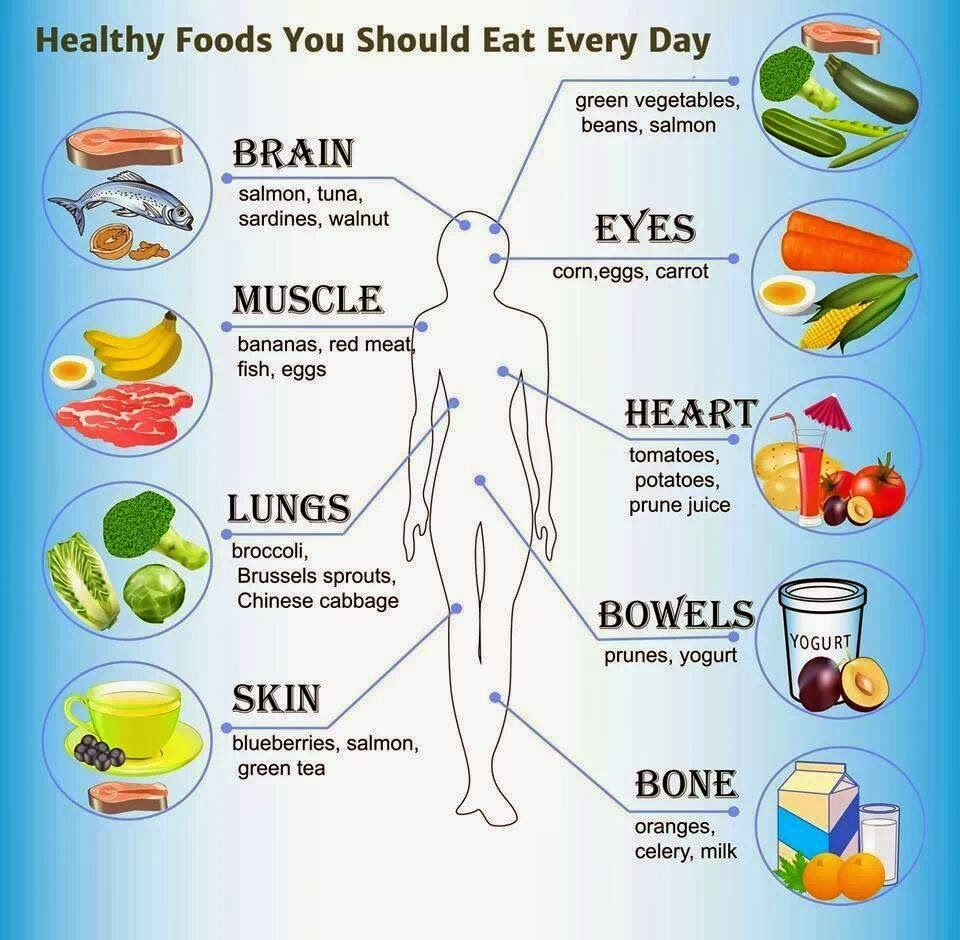
There are free carbs in a lot of foods, like
- sodas with a lot of sugar
- Sugary foods for breakfast
- cakes
- Cookies
- Desserts and cakes
- Chocolate and sweets
- drinks with booze
The labels on food can help. Check to see how much sugar things have with them.
Foods with 5g of sugar or less per 100g are low in sugar, while foods with more than 22.5g of sugar per 100g are high in sugar.
Learn how to eat less sugar.
Don’t eat more salt than 6 grams a day for people
Your blood pressure can go up if you eat too much salt. A person with high blood pressure is more likely to have a heart attack or stroke.
Food may already be too salty for you if you don’t add salt to it.
Meals like cereal, soups, breads, and sauces already have about three quarters of the salt you eat in them when you buy them.
Read the labels on food to help you eat less. If a food has more than 1.5g of salt per 100g, it is high in salt.
No one over the age of 11 should eat more than 6g of salt a day, which is about a teaspoonful. Even less should be given to kids who are younger.
Find out how to eat less salt.
Be busy and keep your weight in a healthy range
Along with eating well, working out regularly may also help lower your risk of getting major health problems. It’s also good for your health and well-being in general.
Find out more about the perks of exercise and how adults can be more active.
A lot of extra weight can make you more likely to get type 2 diabetes, some cancers, heart disease, and stroke. Also, being too thin could be bad for your health.
Most grown-ups need to cut back on calories to lose weight.
Try to eat less and move around more if you want to lose weight. A well-balanced, healthy food can help you keep a healthy weight.
Use the BMI healthy weight tool to find out if your weight is healthy.
You can lose weight with the NHS weight loss plan, a 12-week guide that includes tips on how to eat better and be more active.
Find out more about underweight people if you are underweight. Talk to your doctor or a chef if you’re worried about your weight.
Don’t get thirsty
To keep from getting parched, you need to drink a lot of water. Six to eight glasses of water a day is what the government says you should do. Besides the water you get from food, this is extra water.
All drinks that don’t contain booze count, but water, milk with less fat, and drinks with less sugar, like tea and coffee, are better for you.
Soft and fizzy drinks with a lot of sugar are bad for you because they have a lot of calories. Plus they hurt your teeth.
Free sugar is found in a lot of drinks, even ones that don’t have added sugar.
Every day, you shouldn’t drink more than 150ml, which is a small glass, of fruit juice, veggie juice, and smoothies together.
When it’s hot outside or when you’re working out, don’t forget to drink more water.
Don’t skip breakfast
Some folks choose not to eat breakfast since they believe it will assist them in losing weight.
As part of a healthy diet, a breakfast that is high in fiber and low in fat, sugar, and salt can help you get the nutrients you need to stay healthy.
A tasty and better-for-you breakfast is whole-grain cereal with less sugar, semi-skimmed milk, and sliced fruit on top.
In short
Eating well can help you in many ways, like lowering your chance of heart disease, stroke, obesity, and type 2 diabetes. On top of that, eating well can improve your happiness and give you more energy.
A doctor or chef can give you more advice on how to eat better.

